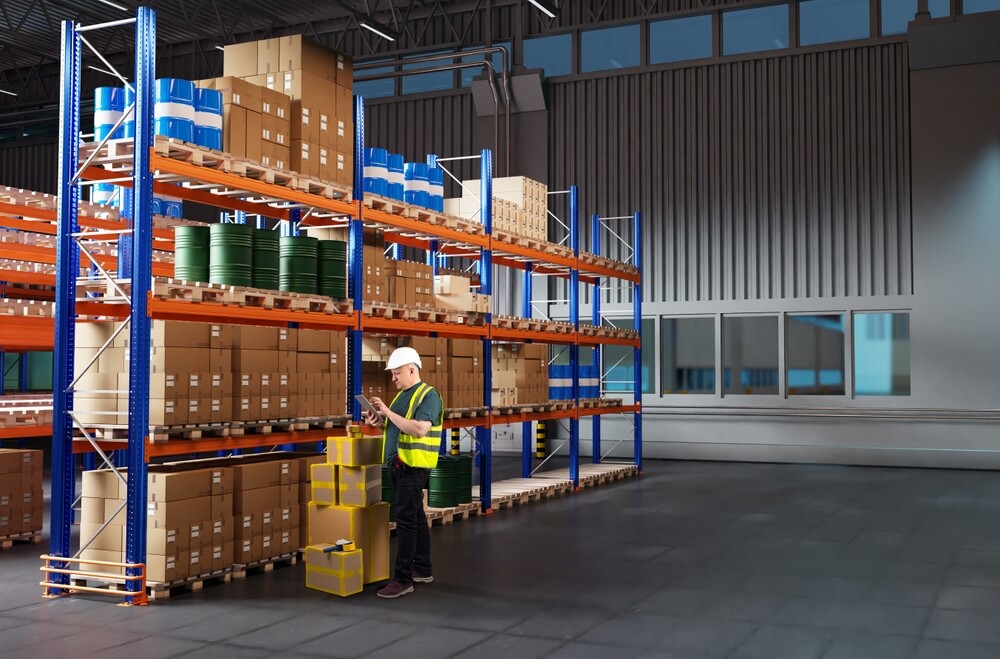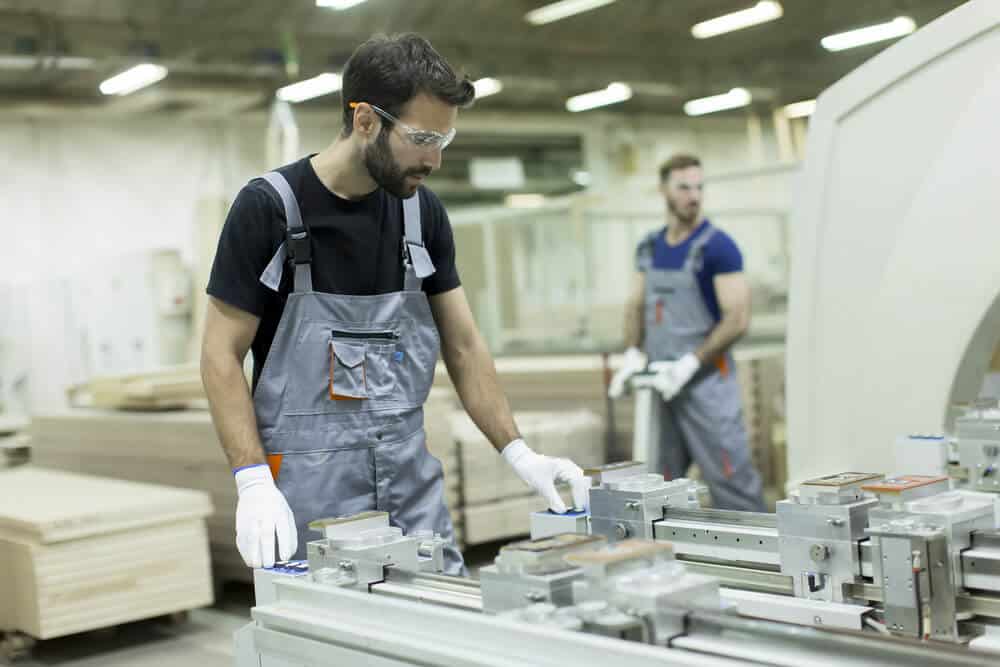In today’s competitive market, innovative products that precisely meet customer needs are key to business success. Custom product manufacturing offers a powerful solution, enabling businesses to create unique, tailored products that stand out from the crowd. This guide explores the concepts behind custom manufacturing, how it works, and how it can transform your product ideas into reality, providing insights for entrepreneurs, e-commerce brands, and businesses looking to innovate.
Read more: The Power of Custom Manufacturing: Unlocking Product PotentialKey Takeaways
- Custom manufacturing creates unique products that meet precise specifications and market needs.
- The process includes prototyping, material selection, and production stages.
- It enables innovation across industries from aerospace to consumer electronics.
- Custom manufacturing can help businesses gain competitive advantages through product differentiation and faster market adaptation.
Understanding Custom Manufacturing
Custom manufacturing is a production approach where products are designed and produced to meet specific customer requirements, as opposed to mass production of standardized items. This method allows for greater flexibility, precision, and innovation in product development.
Key aspects of custom manufacturing include:
- Tailored Design: Products are designed from the ground up to meet specific needs or solve particular problems.
- Flexible Production: Manufacturing processes are adaptable to accommodate unique specifications and smaller production runs.
- Iterative Development: The process often involves multiple rounds of prototyping and refinement before final production.
- Collaborative Approach: Close cooperation between designers, engineers, and manufacturers throughout the process.
The Strategic Advantage of Custom Manufacturing
Custom manufacturing goes beyond traditional production methods, offering several key benefits:
- Precision Alignment: Products can be tailored to exact specifications, ensuring they meet specific market needs or solve unique problems.
- Quality Control: With smaller production runs and more attention to detail, custom manufacturing often results in higher quality products.
- Performance Optimization: Products can be fine-tuned for optimal performance in their intended use case.
- Regulatory Compliance: Custom manufacturing allows for easier adaptation to specific industry standards and regulations.
For businesses aiming to disrupt their market or solve unique customer problems, custom manufacturing provides the flexibility and innovation needed to succeed.

The Custom Manufacturing Journey: From Concept to Market Success
Prototyping and Design: Bringing Ideas to Life
The journey begins with turning concepts into tangible prototypes. Prototyping in custom manufacturing enables testing product functionality and refining designs before mass production. This crucial phase involves several key steps and technologies:
- Concept Development: Translating ideas into detailed design specifications.
- 3D Modeling: Creating digital representations of the product using CAD software.
- Rapid Prototyping: Using technologies like 3D printing for quick iteration of designs.
- Functional Prototyping: Creating working models using methods like CNC machining or injection molding.
Real-World Impact: Consider the success of Nomad, a tech accessories company. By leveraging custom manufacturing for their innovative portable charging solutions, Nomad was able to rapidly prototype and refine their designs. This agility allowed them to secure over $10 million in crowdfunding across multiple campaigns, demonstrating the power of bringing unique ideas to market quickly.
Key Takeaway: Invest in thorough prototyping. It not only refines your product but can also be a powerful tool for attracting investors and early adopters.
Material Selection: Optimizing for Performance and Cost
Choosing the right raw materials is crucial for the durability and functionality of custom products. The choice of materials can significantly impact the quality and performance of the final product. It’s not just about picking any material; it’s about finding the perfect match that balances cost-effectiveness with high quality. This stage focuses on:
- Material Properties: Understanding how different materials perform under various conditions.
- Cost-Benefit Analysis: Balancing material costs with performance requirements.
- Sustainability Considerations: Evaluating the environmental impact of material choices.
- Compatibility: Ensuring chosen materials work well together and with the manufacturing process.
Industry Insight: In the competitive world of consumer electronics, material selection can make or break a product. For instance, when developing their noise-canceling headphones, Bose’s choice of advanced plastics and memory foam not only improved sound quality but also enhanced comfort for extended use. This attention to material selection contributed to their product becoming a market leader.
Strategic Consideration: How can your material choices add value to your product and differentiate it in the market?
Production Process: Scaling with Precision
Custom manufacturing’s production process focuses on creating products that meet the highest standards of quality and performance. Achieving this goal requires clear and consistent communication between designers and manufacturing teams. The production phase involves several key elements:
- Process Selection: Choosing the most appropriate manufacturing methods (e.g., CNC machining, injection molding, 3D printing).
- Tooling Development: Creating necessary tools and molds for production.
- Quality Control: Implementing systems to ensure consistent product quality.
- Supply Chain Management: Coordinating suppliers, production facilities, and logistics.
Success Story: Allbirds, the sustainable footwear company, utilized custom manufacturing to create their innovative wool runners. By closely collaborating with their manufacturing partners, they were able to scale production of their unique wool upper design, growing from a startup to a company valued at over $1 billion in just two years.
Actionable Insight: Establish clear communication channels between your design team and manufacturing partners. This collaboration can lead to innovations in the production process, potentially reducing costs and improving quality.
Addressing Complexities in Custom Manufacturing
Custom manufacturing shines when tackling complex products, especially in industries with stringent requirements. This often involves:
- Advanced Engineering: Utilizing cutting-edge design and manufacturing techniques.
- Regulatory Navigation: Understanding and adhering to industry-specific regulations.
- Precision Manufacturing: Implementing high-precision production methods for critical components.
- Iterative Problem-Solving: Continuously refining designs and processes to overcome challenges.
Case Study: Butterfly Network revolutionized medical imaging with their portable ultrasound device. The challenges they faced included:
- Miniaturizing complex imaging technology
- Ensuring medical-grade precision and reliability
- Navigating FDA regulations for medical devices
Through iterative design and close collaboration with medical experts, Butterfly Network successfully brought their product to market, potentially increasing access to medical imaging worldwide.
Key Learning: When dealing with complex products, consider forming advisory partnerships with industry experts to navigate regulatory landscapes and technical challenges.
Industries Transformed by Custom Manufacturing
Custom manufacturing is driving innovation across a wide range of sectors, revolutionizing product development and production processes. Here’s how various industries are leveraging custom manufacturing:
- Aerospace: Developing lighter, stronger components that improve fuel efficiency and performance in aircraft and spacecraft.
- Automotive: Custom parts for electric vehicles and autonomous driving systems, enhancing both performance and safety.
- Medical Devices: Personalized implants, prosthetics, and innovative diagnostic tools tailored to individual patient needs.
- Consumer Electronics: Rapid product iterations and unique feature sets in devices like smartphones, wearables, and smart home products.
- Fashion and Apparel: On-demand production of customized clothing, footwear, and accessories, reducing waste and increasing personalization.
- Renewable Energy: Efficient and specialized components for solar panels, wind turbines, and energy storage solutions.
- Sports Equipment: High-performance, personalized gear for athletes, from custom-fitted helmets to advanced materials in equipment.
- Furniture and Interior Design: Made-to-order furniture pieces and architectural elements with unique designs or dimensions.
- Packaging: Sustainable, smart, and uniquely designed packaging solutions for product differentiation and improved functionality.
Market Trend: The global custom manufacturing market is projected to reach USD 1356.9 Billion by 2031, with a CAGR of about 4.7% from 2024 to 2031 (VerifiedMarketResearch, 2024).

Leveraging Custom Manufacturing for Business Success
Custom manufacturing offers several strategic advantages:
- Market Differentiation: Create products that solve unique customer problems, setting you apart from competitors.
- Increased Brand Loyalty: Deliver precisely what your customers need, fostering stronger relationships.
- Agility in Market Trends: Quickly adapt your products to changing consumer preferences or emerging technologies.
- Innovation Leadership: Position your brand as an industry innovator by bringing novel solutions to market.
Strategic Question: How can custom manufacturing help you address unmet needs in your target market?
Frequently Asked Questions
How does custom manufacturing differ from mass production?
Custom manufacturing focuses on producing tailored products in smaller quantities, often with unique specifications. In contrast, mass production creates large volumes of standardized items. Custom manufacturing offers greater flexibility and personalization, while mass production typically provides cost efficiencies at scale.
What types of businesses benefit most from custom manufacturing?
Businesses that benefit most from custom manufacturing include:
- Startups with innovative product ideas
- Companies in rapidly evolving industries like tech or medical devices
- Luxury brands offering personalized products
- Businesses serving niche markets with specific needs
- Firms requiring high-precision or specialized components
How does custom manufacturing impact time-to-market for new products?
Custom manufacturing can significantly reduce time-to-market for new products. By enabling rapid prototyping and iterative design processes, it allows for quicker product development cycles. However, the actual impact varies depending on product complexity and the efficiency of the manufacturing partner.
What are the cost implications of custom manufacturing compared to traditional methods?
Initially, custom manufacturing may have higher per-unit costs due to specialized tooling and smaller production runs. However, it can be more cost-effective in the long run by:
- Reducing inventory costs through on-demand production
- Minimizing waste from overproduction
- Allowing for product improvements without large-scale retooling
- Enabling premium pricing for unique or personalized products
How is sustainability being addressed in custom manufacturing?
Custom manufacturing is addressing sustainability through:
- Reduced waste due to on-demand production
- Use of eco-friendly materials and processes
- Design for longevity and repairability
- Local production capabilities, reducing transportation emissions
- Integration of circular economy principles in product design and manufacturing

Your Path to Product Innovation
Whether you’re a startup with a groundbreaking idea or an established brand looking to innovate, custom manufacturing offers the tools and flexibility to turn your vision into reality. By embracing this approach, you can:
- Develop products that precisely meet market needs
- Accelerate your time-to-market for new innovations
- Build a brand known for quality and innovation
In the dynamic world of product development, custom manufacturing is more than a production method—it’s a strategic asset that can drive your business forward. As you consider your next product initiative, think about how custom manufacturing can help you not just meet but exceed your business objectives and customer expectations.



